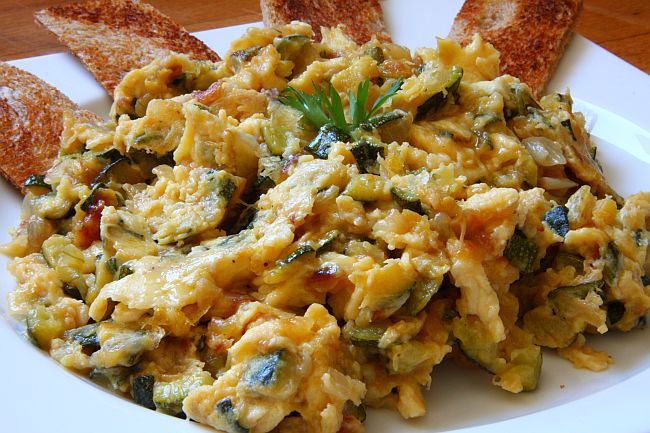When you sit down to eat in any restaurant in Murcia you have to ask for the menu plus a glossary of terms or a culinary dictionary, as Murcian cooking has its own stamp, even in the language. Meat balls are pelotas; green beans, bajocas; Potatoes are crillas and the artichoke, alcaucil. A very special language to describe the exquisite delicacies grown in the largest and richest orchards and vegetable farms in the country. Their produce, combined with traditional and carefully prepared recipes result in tasty and filling dishes.
 18.17.47.png)
Murcian cuisine, unjustly unknown in much of Spain, would be nothing without the presence of two basic ingredients from its farms: tomatoes and peppers, the stars of many of the dishes. Pipirrana is the best example of this. It is a salad based on these two products, to which can also be added aubergines and onions. Another classic of Murcian cuisine is zarangollo, a vegetable dish par excellence featuring courgettes and onions.
 Zarangollo
Zarangollo
The ñora is another favourite on Murcian hobs. It is a hot red pepper with a spherical shape, which is sun-dried. This product is used in both in cooking and preparing cold meats and has a Denomination of Origin. Calasparra rice also enjoys this distinction, and along with the beans, gives body to endless local dishes.
If your thing is stew recipes, you’ll find some very interesting dishes in Murcia, such as olla gitana (gypsy hotpot) (based on chickpeas, potatoes, green beans, pumpkin, tomato and onion) or cocido stew with pelotas, in other words, with meatballs. Tasty stews are also prepared based on chicken and rabbit, especially if you order them al cabañil (with potatoes, garlic and vinegar).
 Olla Gitana
Olla Gitana
Salted and dried fish are other dishes that you must try in Murcia, as well as the cheese, especially the goat varieties and the Queso al Vino, which has a soft texture, intense white colour and a reddish rind caused by its immersion in wine. To accompany so much flavour, Murcia also has three Denominations of Origin in wines: Jumilla, Bullas and Yecla.
The icing on the cake is provided by the desserts of Arab origin, as unique as paparajotes (fried lemon leaves fried in a batter of flour, egg, milk and sugar); and the almojábenas (bagels of flour, sugar, eggs and oil, bathed in honey).
Unresistable!